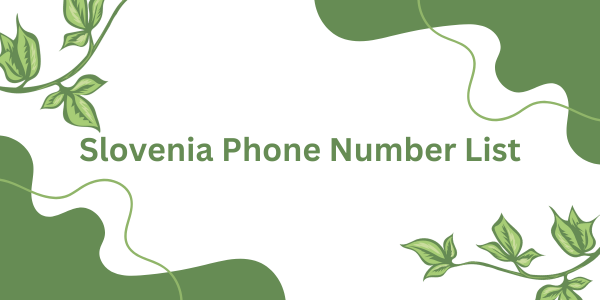|
|
Slovenia employs a parliamentary democracy system to elect its government officials, combining direct and parliamentary elections. The country's political system is anchored in its Constitution, with power shared among the directly elected President, the Prime Slovenia Phone Number List Minister, and the bicameral National Assembly. This system ensures democratic representation through regular elections and checks and balances among government branches.
The President of Slovenia is directly elected by the people for a five-year term, with the possibility of one re-election. Presidential elections operate in a two-round system, where a candidate must receive more than 50% of the votes to win outright in the first round. If no candidate achieves this, a runoff is held between the top two candidates from the first round (IFES Election Guide). Recent elections, like the 2022 presidential election, demonstrate this process, with Nataša Pirc Musar being elected as Slovenia's first female President in 2022.
The National Assembly, the lower house of the Slovenian Parliament, consists of 90 members directly elected by the public through proportional representation. Slovenia uses a mixed-member proportional representation system with multi-member constituencies, and citizens can cast preference votes for individual candidates within party lists. The system applies a nationwide 4% electoral threshold for parties to gain parliamentary seats, ensuring stable parliamentary majorities (Wikipedia). Furthermore, the National Council serves as an advisory body composed of representatives from various societal sectors rather than directly elected officials.

Prime Ministers are chosen by the President but must be approved by the National Assembly, highlighting Slovenia's parliamentary system's cooperative and democratic approach. Parliamentary elections are held every four years, although special circumstances may lead to early elections. Additionally, referendums are an integral part of Slovenian democracy, allowing the population to vote on critical issues.
The political structure balances a mix of direct democratic processes and parliamentary systems, ensuring that citizens have both direct and representative methods of electing government officials. This process reflects Slovenia's commitment to democracy and adherence to European Union standards, which Slovenia joined in 2004 (IFES Election Guide; Wikipedia)
|
|